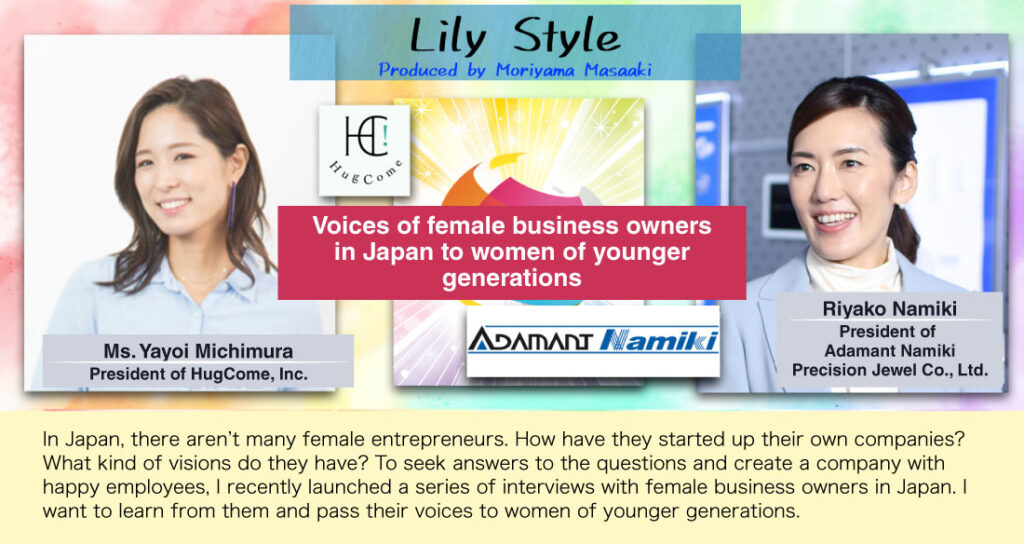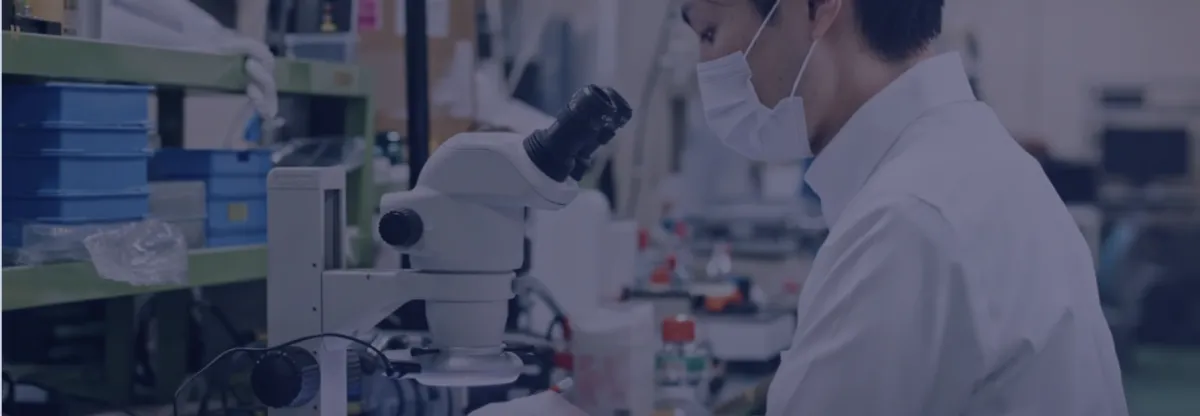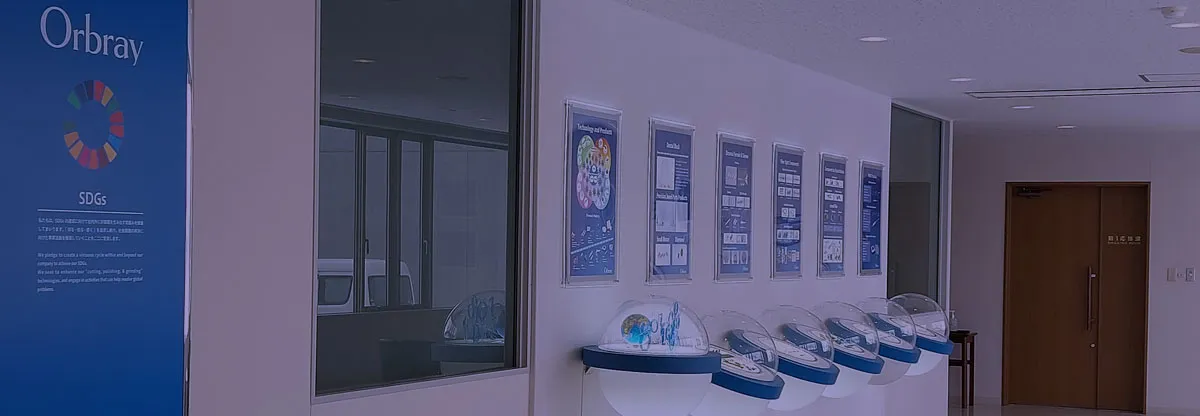Lily Style: Interview with Female Entrepreneur in Japan vol.01 President and CEO, Riyako Namiki
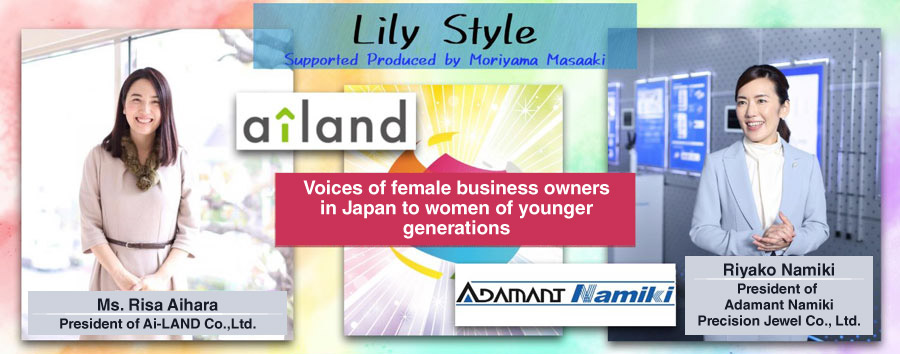
In Japan, there aren’t many female entrepreneurs. How have they started up their own companies? What kind of visions do they have? To seek answers to the questions, I recently launched a series of interviews with female business owners in Japan. I want to learn from them and pass their voices to women of younger generations.
For the first interview, I invited Ms. Risa Aihara, who heads Ai-LAND Co.,Ltd. in Tokyo. The company runs web sites popular among women in Japan.
Riyako Lily Namiki: Please tell me about Ai-LAND Co.,Ltd.
Risa: Our company has run web sites since 2003 under the concept of “making your life more joyful and comfortable.” They include “Otoriyose-net,” one of Japan’s largest on-line order gourmet site, and a portal site named “receipt blog” contributed by those who share their own receipts via SNS (we call these people “foodists.) We also run “Foody Table” posted by Instagramers specializing in cooking and “Foodist Service” that hosts cooking Twitter media called “Sugurepi.” We also manage “asa-jikan.jp” which is Japan’s first life-style web media targeting early birds, to provide tips and information to make your morning hours comfortable and help to make a good start of the day.
Lily: I have been interested in your career and wanted to hear your story – how you spent school days and started up your company. Did you want to be an entrepreneur from the beginning?
Risa : No, I never thought of starting my company, not at all. Right after I started my university, I attempted to travel overseas. But my parents stopped sending me money, so I began to make a living by doing part-time jobs in the autumn of my freshman year. I continued to do so for three years and worked as a part timer in about 20 different occupations. I found working is a fun.
One of my part time jobs was a producer and a host at a cable television company. I became interested in multimedia and a broadcasting of a new type. I hoped to do Internet business. After graduating university, I was hired by NTT Communications Corporation and assigned to the section of information development of multimedia. Then I moved to Recruit Co., Ltd. and was engaged in creating information media via Internet.
Even so, at the beginning of my professional career, I was a sort of failure. In a job interview, I said I wanted to work for a multimedia section because I worked at the cable company as a part timer. I was hired probably because I was regarded as an expert of Internet. In fact, I had never even touched a personal computer at that time. Other new employees appeared to have scientific background and be capable of writing computer programs.
I was placed in the section of system development for one-line shopping, which tried to create a system to buy vegetables via Internet. When I had a look at the screen under development, I thought the system was far from user-friendly. I came up with the idea of sharing feedbacks from women who aren’t familiar with Internet but have opinions on how to make it user-friendly. I asked for advice from people outside. They said it would be better to create an on-line community where such women can post their ideas, rather than to transmit information from me alone.
So, I initiated such Internet community and asked many women to join. As the Internet business in Japan was dominated by science-major men in those days, this community attracted a lot of attention and was reported in various media. I published a book in the second-year of my full-time employee career. I found I happened to stand in a rare position in the industry, unexpectedly. I found the project started by me, a failure in the industry, made some contribution to the company. Since then, whenever I thought of ideas about unavailable online services, I have tried to realize them if nobody else does.
Lily : Talking about “a rare position,” I was also in such a position. I happened to be an entrepreneur last year after being a professional athlete, a housewife and an organizer of kids’ camps. Your story convinced me how you have built up your career through struggles and creation of new services, being inspired from the perspective of a woman.
Lily : My goal is to create a happy company where all employees can feel happiness. How do you think about the ways to achieve happiness of your company’s employees?
Risa : It’s hard to define what happiness is. There are a few things which I put importance on. Happiness takes a variety of forms. It’s very important for a company to have a vision on what happiness is. There might be people who love their jobs and want to work like a dog? and hope to start their own firms in the future. They might become unsatisfied and unhappy if they join a company which expects employees to work from nine to five. On the contrary, if those who value private time join a startup company which expect employees to work even on weekends, they might find themselves unhappy. We need to ask employees what they think about happiness. I’m saying this with the intension of self-discipline.
Lily : Yes, indeed. The definition of happiness is up to each person. The first thing we should do is to listen to what employees say. I want to bear this in my mind. Currently I’m thinking of creating clubs in our company. Adamant Namiki is a company with a long history and employees have various views and opinions. As the first step, I want to try to create a community for those who share thoughts. I need to do it step by step.
Lily : Have you had any difficulties because you are a female entrepreneur?
Risa : I don’t think so. Given the nature of our web media, having a female owner can help to make the company’s services more persuasive, which is advantageous. The strength of female entrepreneur, which is the weakness at the same time, is being rich in emotion. We have to be very careful about the point because we may appear so fickle and moody that we leave people around us behind. It is important to keep your state of mind steady.
Lily: I understand very well what you mean. When I was an athlete, I practiced a meditation to stay calm. That’s important. Also, I think the presence of women at a meeting helps to make a relaxing atmosphere. As you mentioned, men and women have different points of views. I wish to create a workplace where both men and women can make use of their abilities.
-
Lily Style: Interview with Female Entrepreneur Vol. 6 Ms. Mai Papillon, Head of Energy Station
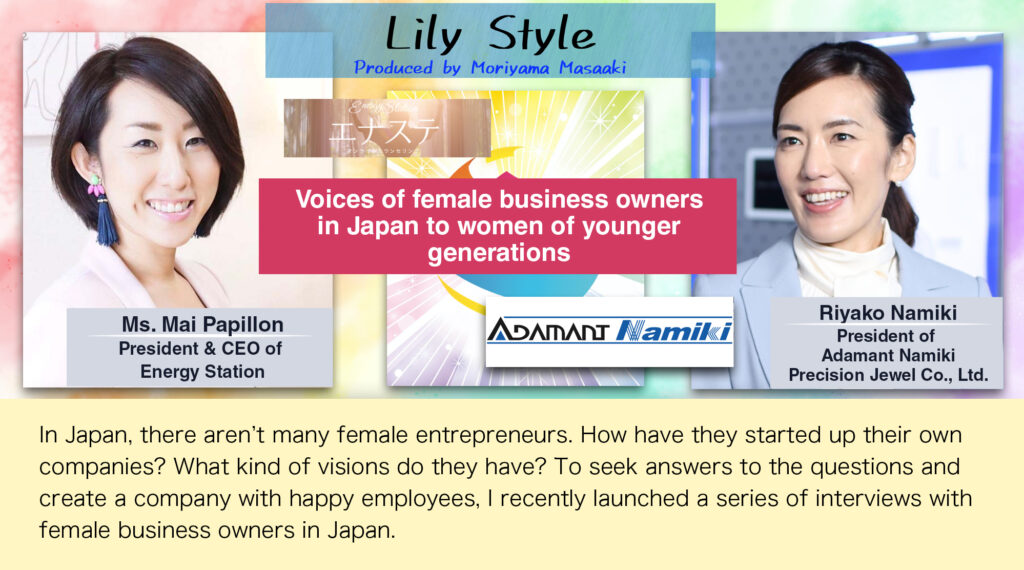
-
Lily Style: Interview with Female Entrepreneur in Japan vol.2
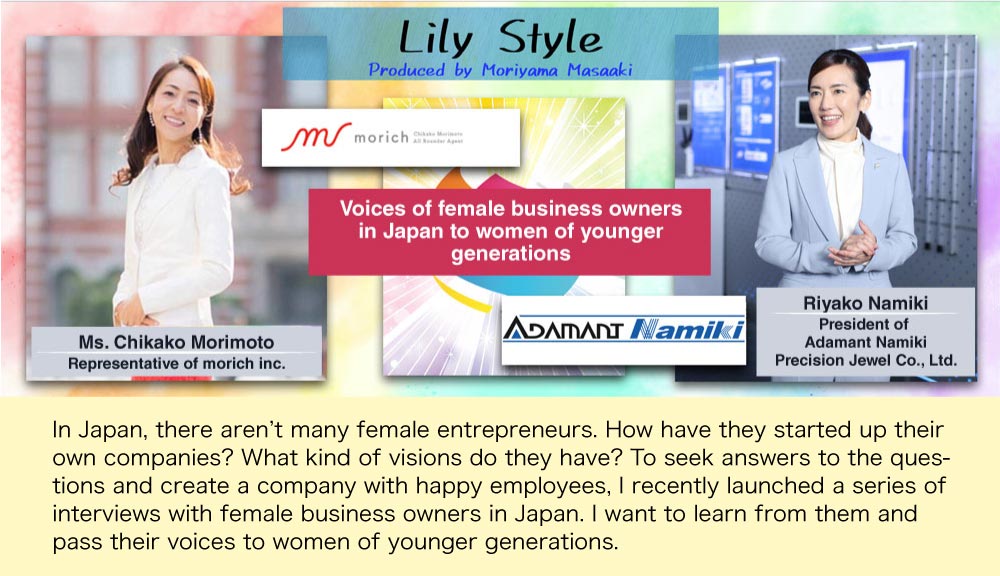
By Riyako Lily Namiki, President and CEO -
Lily Style Interview with Female Entrepreneur Vol.3
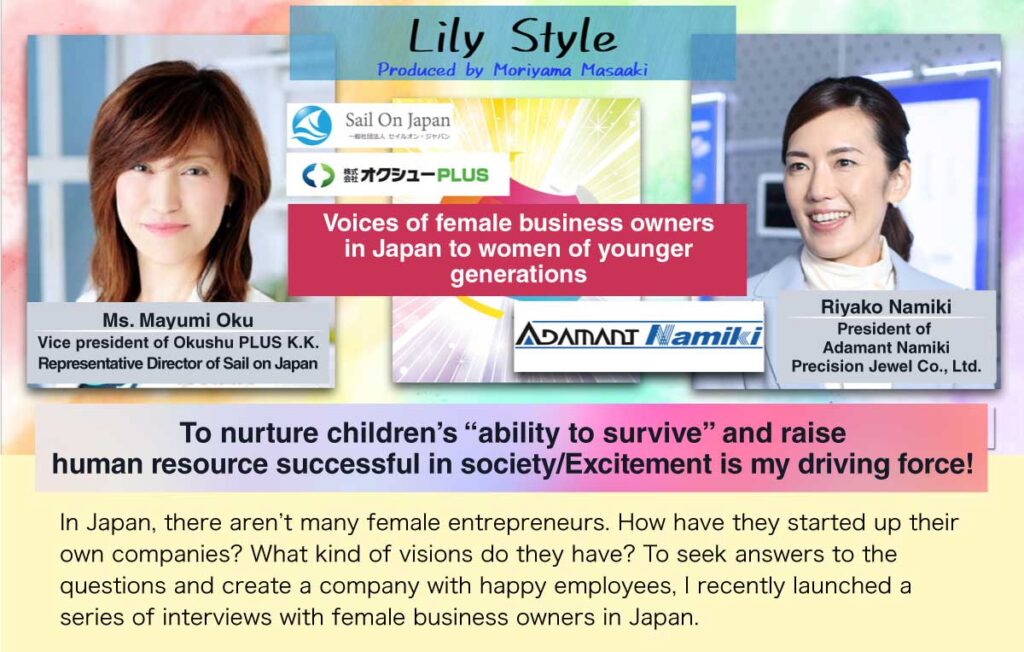
-
Lily Style: Interview with female entrepreneurs
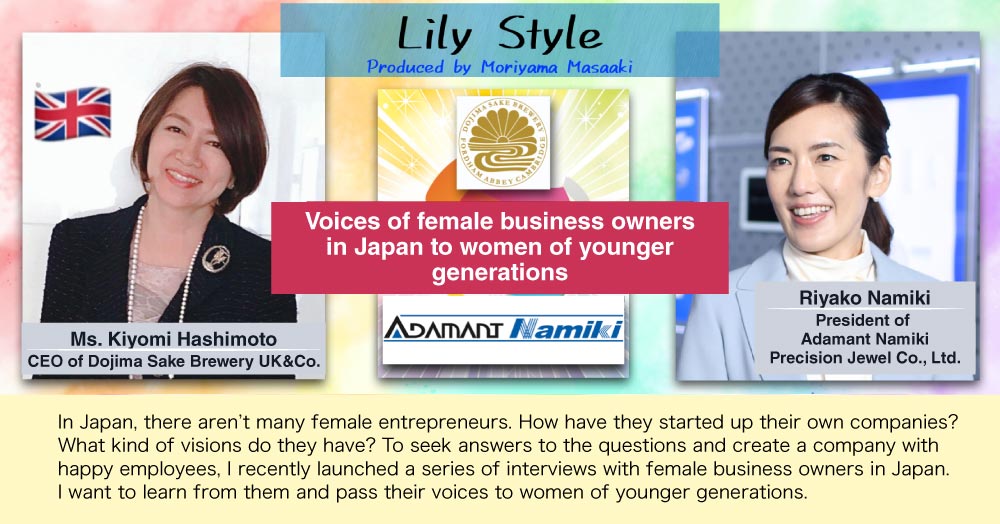
Vol. 5 President and CEO, Riyako Namiki -
Interview article of our President Riyako Namiki appeared in Newsweek International and the Worldfolio website.
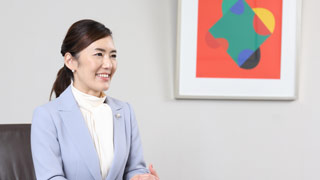
-
Lily Style Interview with Female Entrepreneur in Japan Vol. 4
